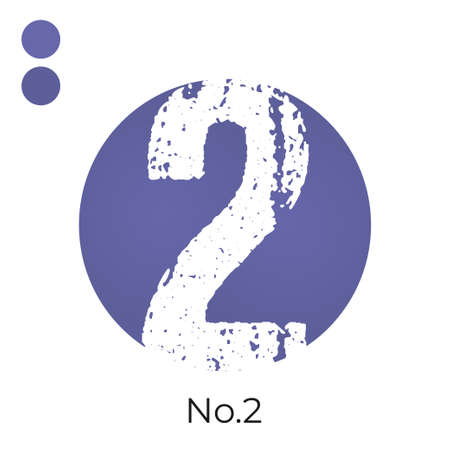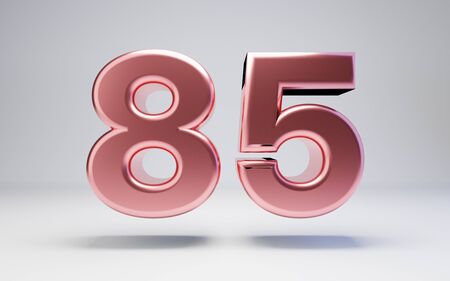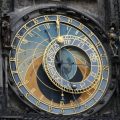Understanding Master Numbers: A Brief Overview
Master numbers are a central concept in numerology, a belief system that assigns mystical significance to numbers and their influence on human life. In the context of British culture, numerology has seen periodic surges in popularity, often featured in magazines, lifestyle sections, and the occasional television segment. But what exactly are master numbers? Typically, these refer to the double-digit numbers 11, 22, and sometimes 33, which are considered to possess heightened spiritual or vibrational power compared to other numbers. Within the UK, discussions about master numbers often occur in informal settings—such as chats over a cuppa or through light-hearted quizzes online—rather than as part of any formal educational curriculum. Nonetheless, many Brits encounter references to these numbers when exploring self-help literature or alternative spirituality. Master numbers are thought to symbolise greater potential for intuition, leadership, and insight. However, their precise meaning and importance can vary considerably depending on who you ask or what book you pick up at your local Waterstones. As we begin to unpack the common misconceptions surrounding master numbers among the British public, it is crucial first to understand this basic framework and why these particular numbers hold such fascination in modern UK culture.
2. Assuming Everyone Believes in Master Numbers
One of the most prevalent misconceptions about master numbers in the UK is the assumption that everyone acknowledges or values them equally. In reality, British society is markedly diverse in its attitudes towards numerology and related beliefs. Unlike some cultures where numerology might be woven into daily life or religious practice, the UK tends to exhibit a more sceptical and secular outlook, especially when it comes to mystical or pseudoscientific claims.
It’s important to note that many Britons view numerology, including the concept of master numbers, with a healthy dose of scepticism. This perspective is shaped by a strong tradition of scientific rationalism and secularism, which has influenced British education and public discourse for decades. As such, while some individuals might privately hold beliefs about master numbers, these views are far from universally accepted.
Attitudes Towards Master Numbers in the UK
| Group | Typical Attitude | Prevalence |
|---|---|---|
| Sceptics & Rationalists | View master numbers as unfounded or pseudoscientific | High |
| Casual Believers | Might find master numbers interesting but not significant | Moderate |
| Enthusiasts/Practitioners | Actively incorporate master numbers into personal or spiritual practices | Low |
Cultural Context Matters
The secular nature of British society means that personal beliefs around topics like master numbers tend to be private rather than publicly endorsed or widely discussed. Unlike horoscopes, which occasionally appear in mainstream media, numerology and master numbers occupy a much more niche space within British culture.
Summary
Assuming universal belief in master numbers among the British public overlooks the country’s prevailing scepticism and secularism. Instead, awareness and acceptance vary considerably across different segments of society, reflecting broader cultural trends towards critical thinking and evidence-based reasoning.

3. Overestimating the Prevalence in British Culture
One of the most common misconceptions among the British public is the belief that master numbers hold a prominent or mainstream position within UK culture. This perception is often fuelled by popular media, online forums, and imported literature that treat numerology—and master numbers specifically—as universally significant. In reality, the cultural footprint of master numbers in Britain is relatively minor, especially when contrasted with countries where numerology forms an integral part of spiritual or everyday life.
In the United Kingdom, traditional beliefs and superstitions tend to revolve around concepts such as lucky numbers, Friday the 13th, or even regional folklore. Master numbers like 11, 22, and 33 do not feature prominently in local customs or national consciousness. While there are certainly enthusiasts and communities interested in numerology, these groups remain niche rather than representative of mainstream British thought.
It’s also important to note that references to master numbers are far less prevalent in British pop culture compared to places like the United States or parts of Asia, where numerological ideas may influence business practices, daily decisions, or even architectural choices. In Britain, conversations about personal destiny or character traits are more likely to be shaped by astrology columns in the tabloids than by discussions of master numbers.
This mistaken belief in their widespread relevance can lead people to overestimate both the acceptance and understanding of master numbers within their own social circles. For many Brits, encountering terms like “master number 11” is more likely to prompt curiosity or scepticism than recognition. As such, it’s useful to approach discussions about master numbers with a realistic sense of their actual place within British cultural life—acknowledging their presence without inflating their significance.
4. Confusing Master Numbers With Ordinary Numerology
One of the most prevalent misconceptions among the British public is the tendency to conflate master numbers with standard numerological interpretations. This confusion is understandable, as both systems use similar digits and calculations, but the distinctions are significant and worth clarifying.
Understanding the Difference
Ordinary numerology typically involves reducing numbers down to a single digit (1-9) through addition. In contrast, master numbers—specifically 11, 22, and 33—are exceptions to this rule and are not reduced further because they are believed to carry intensified energy and unique attributes.
Key Differences: Master Numbers vs Ordinary Numbers
| Aspect | Ordinary Numbers (1-9) | Master Numbers (11, 22, 33) |
|---|---|---|
| Calculation Method | Reduced to a single digit | Not reduced if the result is 11, 22, or 33 |
| Interpretation | General personality traits and tendencies | Elevated potential, spiritual significance, greater challenges |
| Cultural Recognition in the UK | Commonly known and discussed in horoscopes and lifestyle media | Often misunderstood or overlooked in mainstream coverage |
| Perceived Impact | Everyday influences on character and life path | Seen as rare callings or opportunities for higher purpose |
The Unique Attributes of Master Numbers
Master numbers are considered by practitioners to be double vibrations of their root digit (e.g., 11 is a higher octave of 2), but they also come with heightened responsibilities and challenges. For example, someone with an 11 in their chart may be seen as having increased intuition or spiritual insight, while a person with a 22 might be viewed as possessing exceptional practical skills with visionary potential. These characteristics set them apart from ordinary numbers and should not be interpreted as simply stronger versions of their base number.
In summary, it is crucial for anyone exploring numerology in Britain to distinguish between these two categories. Recognising master numbers for what they are prevents oversimplification and helps individuals engage more meaningfully with this aspect of numerological tradition.
5. Attributing Supernatural Powers to Master Numbers
Among the British public, there is a persistent belief that so-called master numbers—such as 11, 22, and 33—possess supernatural powers capable of influencing daily life or personal fortune. This misconception seems to stem from popular culture and imported numerology trends rather than any empirical evidence or local tradition. However, it is important to approach such claims with a typically British sense of rationality and scepticism.
The notion that certain numbers can exert tangible effects on events, relationships, or financial outcomes does not hold up under scrutiny. In British society, which values critical thinking and scientific reasoning, these ideas are often viewed with suspicion. There is no credible scientific research to support the idea that master numbers have any mystical control over our lives. Instead, patterns attributed to these numbers are more likely the result of cognitive bias, coincidence, or the human tendency to find meaning in randomness—a concept well-understood in fields such as statistics and psychology.
It is worth noting that while many may enjoy the intrigue or comfort that comes from engaging with numerology, attributing actual supernatural power to master numbers can be misleading. It may detract from personal agency and rational decision-making, which are highly regarded aspects of British culture. Ultimately, embracing a balanced view—where numbers are appreciated for their mathematical properties but not imbued with magical significance—is more in keeping with British sensibilities.
6. Mistaking Master Numbers for Official or Scientific Concepts
One of the more persistent misconceptions among the British public is the belief that master numbers—such as 11, 22, and 33—have some form of official or scientific recognition within the UK. This misunderstanding can often be attributed to how confidently these terms are used in popular culture and self-help materials, giving them an air of legitimacy. However, it is important to clarify that master numbers are not acknowledged by any respected British scientific bodies, academic institutions, or governmental agencies. No university mathematics department, statistical society, or official regulatory body in the United Kingdom validates the idea of master numbers as having inherent power or significance beyond their context in numerology.
It is crucial to differentiate between concepts that originate from esoteric traditions—like numerology—and those that are recognised through rigorous scientific validation. In Britain, official recognition requires evidence-based assessment, peer review, and clear consensus within the relevant field. Master numbers simply do not meet these criteria. The British scientific community treats numerology as a belief system rather than a science; therefore, claims regarding master numbers should be understood as part of a personal or spiritual framework rather than objective fact. By making this distinction clear, we can help counteract the misconception that these numbers carry any sort of endorsed or authoritative status in the UK.


